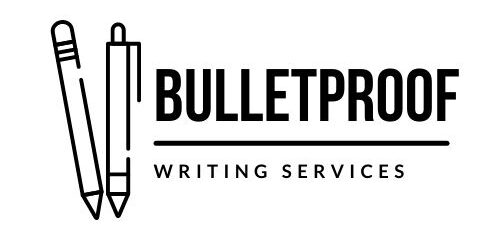Many authors think that if they want to make more money, they have to write more books. And that’s true—but only to a point. There’s another way to bump up your author revenue streams without having to write more books: use your sub-rights.
What Are Subsidiary Rights?
You know about copyright, your legal right to reproduce, publish, sell, or distribute forms of your book. A subsidiary right, or sub-right, is a right you can use to create other income sources. The good news is that, as an author, you have many sub-rights to explore. We touched on sub-rights briefly during our discussion on audiobooks, but your income potential goes beyond audio rights. These are also options for you:
- Amusement parks
- Anthologies
- Apps and games
- Audiobooks
- Book clubs
- Branding and sponsorships
- Education or speaking gigs
- Electronic editions, like e-books
- Film and TV adaptations
- Foreign rights
- Merchandise
- Serial rights
- Special editions
- Translation rights

Why Do Sub-Rights Matter?
Visibility matters when you’re an author. Ads, interviews, prime shelf and display space, reviews—all of those make you and your book more visible for potential readers and fans. Sub-rights increase your visibility by granting you access to new markets, and more visibility means more sales.
This goes beyond having an e-book edition. Think about different ways to repackage your book and ideas:
- Translate your book for an international market.
- Sell a large-print edition.
- Release a special edition.
- Create a book club package.
- Use your book as the basis for a serialized column in a magazine.
The possibilities are huge and can really boost your revenue, especially if you consider what products would be a great fit for your book. Consider possible collaborations with other businesses or authors:
- Create a set of spice blends, cookware, or aprons to go along with your cookbook.
- Design a journal to support your book on meditation.
- Offer an online course for coaching in your niche.
- Market a companion workbook or app for your self-help guide.
You’ll pick up new readers through new products based on your original book. This makes subsidiary rights valuable.
If your book has strong potential for big sub-right sales, you can negotiate a larger advance when you work with traditional publishers. You can even sell the sub-rights for your book before it’s published.
Who Owns the Sub-Rights to Your Book?
Are you a self-publishing writer? If so, you have all the sub-rights, even if you weren’t aware of them. Even as a self-published author, you can pitch your book or backlist to literary agents for representation, especially if you have a strong sales record (think 5,000+ copies sold).
Did you publish traditionally? Check your contract to see who ended up with which sub-rights. They’re transferable pieces during your contract discussions, so don’t assume that you have all the sub-rights to your book.
If you’re thinking about traditional publishing, remember that the contract terms are negotiable. A sub-right agent can help you preserve more of your rights during contract discussions. Your literary agent or lawyer can also help you work out the best deal.
How Does the Revenue from Sub-Rights Work?
Your income from sub-rights depends on several factors. If you’ve split the rights or revenue from the rights with your publisher, those terms should be outlined in your contract. The split itself will depend on which rights the publisher sold, the sale terms, and your negotiations with the publisher. It’s typical for the sub-right revenue split to differ from the royalties percentage of your book sales.
If you own the rights, you could receive a percentage of the sales or streams, a licensing fee, or a licensing fee plus a royalty rate.
So your income from certain sub-rights isn’t necessarily a onetime payout. For example, with TV or web series rights, you can sell the option to your book. The buyer will pay a certain amount to work on the adaptation for a specified length of time—even if a network or streaming platform doesn’t pick it up. Once the option expires, you can sell another option to a different buyer.
Or you could sell the performance rights for live readings, theatrical adaptations, or other live events based on your book. These rights give you options for recurring revenue sources, so they’re definitely worth investigating.
How Do I Get Started with Sub-Rights?
Build a press kit around yourself, your book, and your expertise. Include these elements:
- Your bio
- Information about your book
- Who your readers are
- Your social media stats
- Previous press mentions
- Who you collaborate with
- How to get in touch with you
Once your press kit is ready, pitch it to companies or brands you want to partner with. You can even go directly to agencies that specialize in sub-rights, like DropCap Marketplace. For a small annual fee, they’ll list your book and its sub-rights to an international market for buyers. If you’re ready to think about merchandise options, check out Women in Toys, Licensing, and Entertainment.
Takeaways
Subsidiary rights are rights you can develop to form other income streams based on work you’ve already completed. Capitalizing on your sub-rights widens your reach, gaining you new readers and more sales. Both traditional and self-published authors should investigate sub-rights to maximize their author revenue. Work with a lawyer or sub-right agent to protect and make the most of your rights, and create a press kit to encourage partnerships with potential collaborators.
Need some help with your press kit? Contact me! I can help write, revise, or proofread your marketing content, ensuring that your ideas and expertise shine. Together, we’ll make your content bulletproof!
